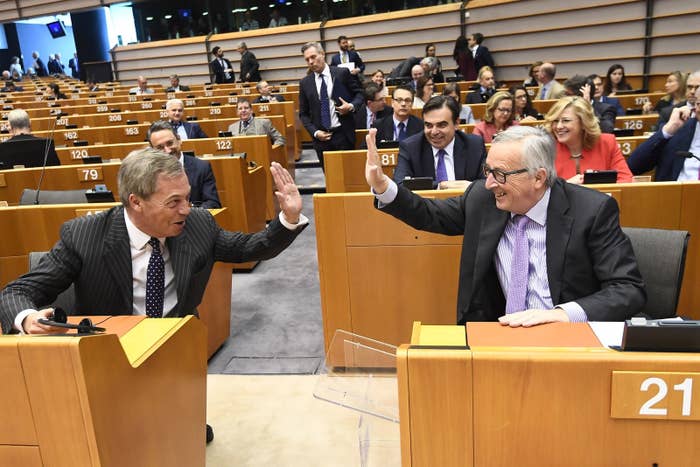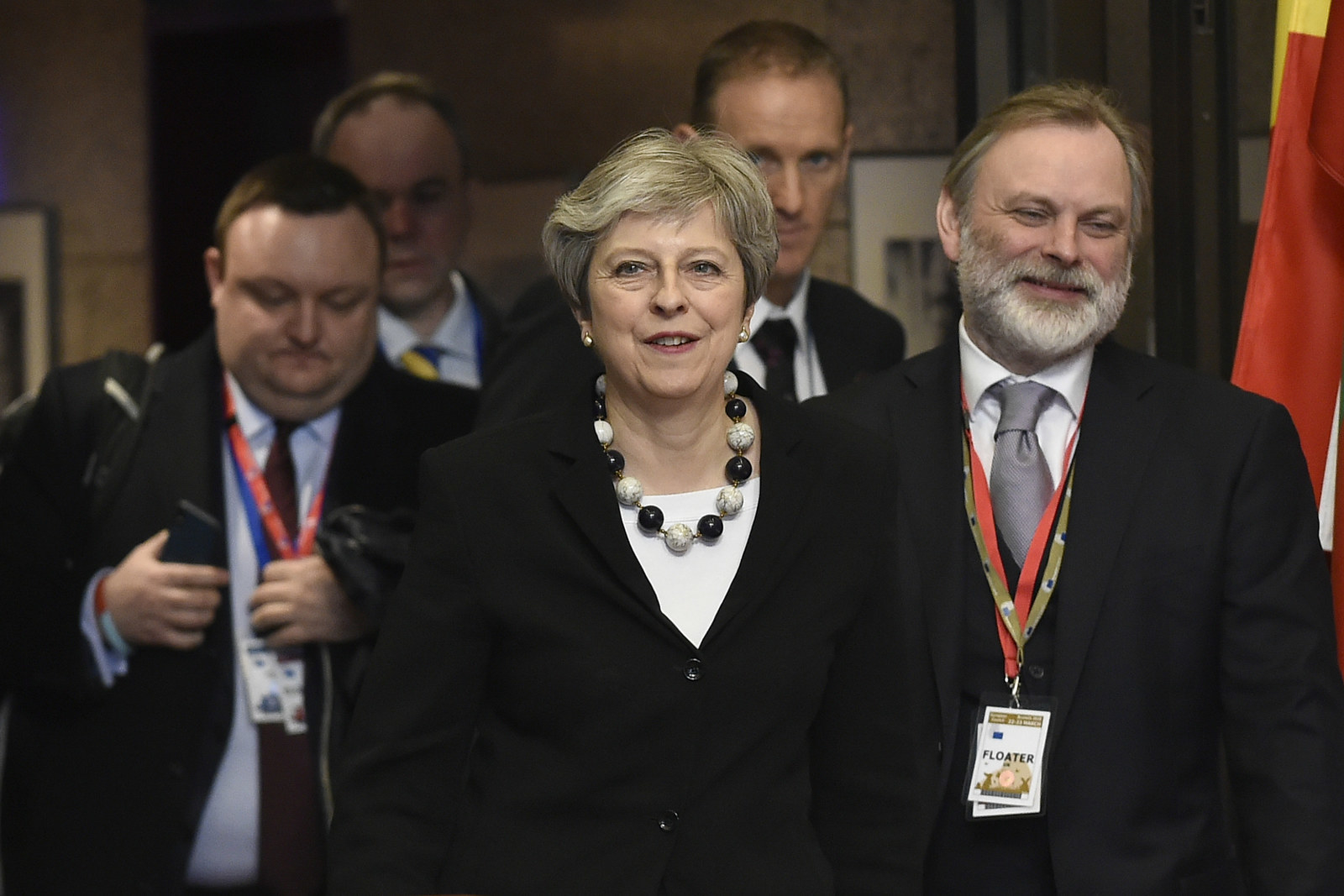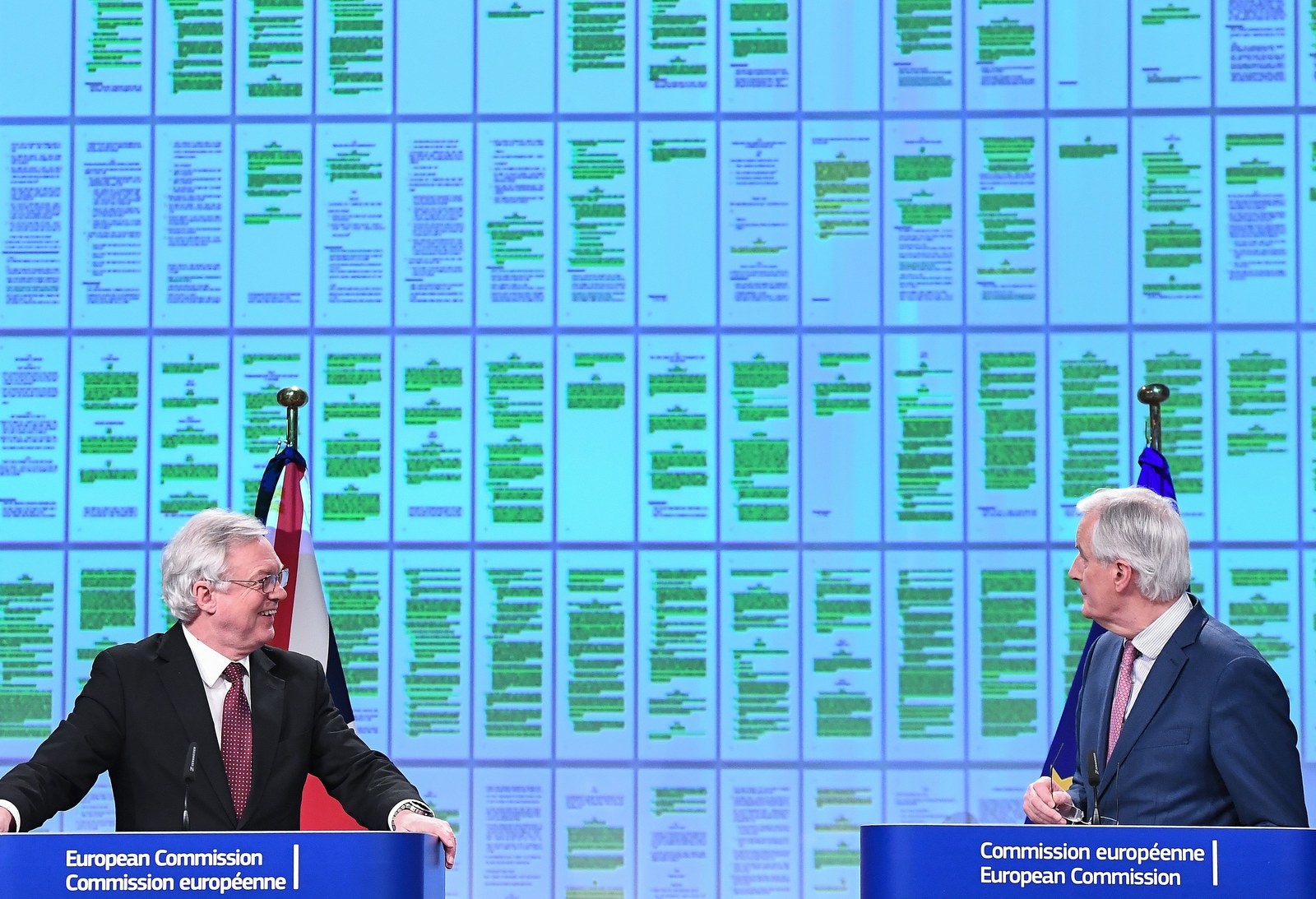
BRUSSELS – For British nationals working for the European Union, dealing with the UK government since the Brexit vote has been a source of anger, disappointment, and much uncertainty.
The members of the 1,260-strong workforce have lots of questions about their livelihoods but have not received many answers.
In the wake of the referendum, the UK’s diplomatic representation in Brussels organised a series of Q&A sessions for the EU’s British staffers.
“They reached out but had little to say. They were unable to answer questions,” a UK national who has worked in Brussels for more than two decades, and attended the Q&A sessions, told BuzzFeed News. “It was a pointless exercise.”
UK officials’ talk of how well the negotiations were going was particularly grating to those who were at the sessions. “We didn’t give a shit. It was the wrong message to the wrong audience,” the EU official added.
“You might get away with that in Wolverhampton, but not here,” a second official said.
The Q&A sessions were abandoned after a couple of months.
The careers of the EU’s British staff, who form a tiny fraction of the 1.3 million Britons who live in the EU’s 27 member states, remain in limbo 13 months after negotiations began.
Although the UK and the EU agreed last December that not much will change after Brexit for Britons living in the EU, nor for EU nationals currently living and working in the UK, the legal certainty of the agreement still hangs on negotiators concluding an overall withdrawal deal by March 2019.
But, beyond concerns about their jobs and legal status, the worse feeling is a sense that their own country has turned its back on them, British EU staffers say.
“The issue isn’t that they’re not thinking about what happens to Brits in the EU, but more broadly to UK citizens overseas, having our concerns heard and taken into account,” one staffer said.
“UKRep [the UK Permanent Representation to the EU] doesn’t have our backs. The EU has our backs,” the official added, recalling reassurances provided by the European Commission the day after the 2016 referendum, and ever since.
.@JunckerEU #EPlenary @CharlesMichel “I would like to see the same generosity from Belgium for the British officials working in the EU institutions and who would like to obtain Belgian nationality. They deserve it.” #FutureofEurope https://t.co/8bx3z5Hiqi
Still, despite these assurances, the British staffers acknowledge that for those without a second nationality, their career prospects in Brussels will ultimately depend on the wishes of the remaining 27 member states.
A UK government spokesperson said: “The government recognises the contribution that EU staff with UK nationality make in supporting the work of the EU institutions. We are aware of the concerns British nationals have about their employment in the institutions. It is for the EU to decide its employment practices for its staff, but we hope that the Commission and other EU institutions will recognise the contribution made by UK nationals working in the institutions.”

One of UKRep’s functions in Brussels is to assist British staff working in the EU institutions who are seeking advice or support on EU business and, where requested, on other matters. This function is still in place.
However, British staff working for the EU told BuzzFeed News that once the Q&A sessions stopped so did the UK’s attempts at outreach.
“There has been no contact whatsoever. None whatsoever,” a staffer said. The official explained that the only communication they’d received from the UK since the Brexit referendum was a letter informing them that they’d lost their right to vote having lived abroad for 15 years.
“In that case, the admin worked well. It was extremely efficient and effective. Not the comms I wanted to have, but the only comms I’ve had,” the employee said.
Several officials also noted that even their once-a-year invitation to a drinks reception at the British ambassador’s residence in Brussels hadn’t come through since the Brexit vote.
It is not the only practice that appears to have changed since the referendum.
The UK’s former permanent representatives to the EU and the prime minister's previous EU advisers would regularly meet with senior British EU officials to brief them ahead of major summits or to update them on discussions back home.
“This is not happening any more,” a senior official said.
“The truth is we’re an embarrassment to the UK government. It has nothing to gain from supporting us,” the same official added.
“One problem is the whole political environment is so sensitive, we wouldn’t have anything to say to each other. British civil servants would have to toe the line and say negotiations are going well when we know it’s not true.
“On other issues, a dialogue was possible. On Brexit, it’s impossible.”
BuzzFeed News understands that UKRep has changed its approach to receptions. It no longer runs receptions specific to the British staff and is now focusing on receptions with wider audiences with a different policy focus for each event.
A UK government source said: “UK government officials continue to meet with British officials working in the EU institutions as part of our usual business on a regular basis.”
All the Britons BuzzFeed News spoke to in Brussels were keen to point out that existing personal and informal relationships with individual members of UKRep staff were not an issue. “The problem is in London,” one official stressed, noting they had friends working at Britain’s diplomatic outpost and would occasionally meet up for informal drinks and networking.

In some respects, the UK’s approach to its citizens working in the EU hasn’t changed significantly since the referendum because the UK has always taken a more hands-off approach compared with other EU member states.
“The UK successfully placed fast-streamers in [EU] institutions before Brexit, and then forgot about us,” an official said. “This is very different to other countries.”
And some officials used to welcome the hands-off approach.
“It was fine, and it’s how Brits do things,” another staffer said. The official praised how the UK had helped them with essential training to get through the EU services exam, an opportunity that not all member states provide.
A third official said: “Some member states actively push their staff to get into key positions. The Brits have always played the game very fairly. It’s about ‘soft influence’, influencing the culture by having Brits here.”
However, all three officials were on the same page in describing the UK’s handling of the relationship with Britons abroad since the referendum.
“You want contact with your national authority, but the truth is they have nothing to say,” one of the officials, who has worked in Brussels for 13 years, said. “There is a disregard for people who don’t live in the country.”
Another official had even inquired about moving back to the UK immediately after the referendum, believing that their expertise and experience could be useful to the government. The official never heard back. “They didn’t want us, and now we don’t want them. It would be career suicide.”
The UK Foreign Office, the Department for Exiting the European Union, and the Department for International Trade all said they could not answer questions about whether any EU civil servants had joined the government since the referendum as previous employment data is not information the government records.
